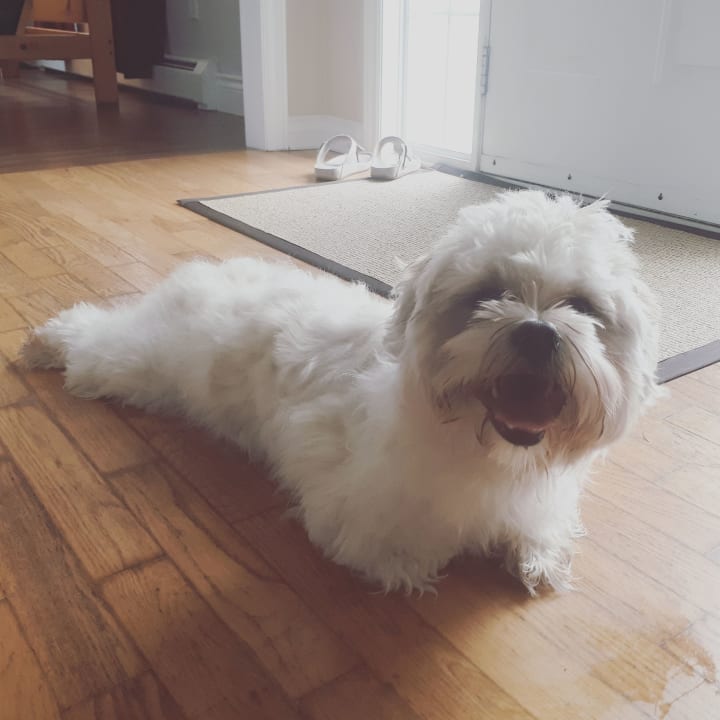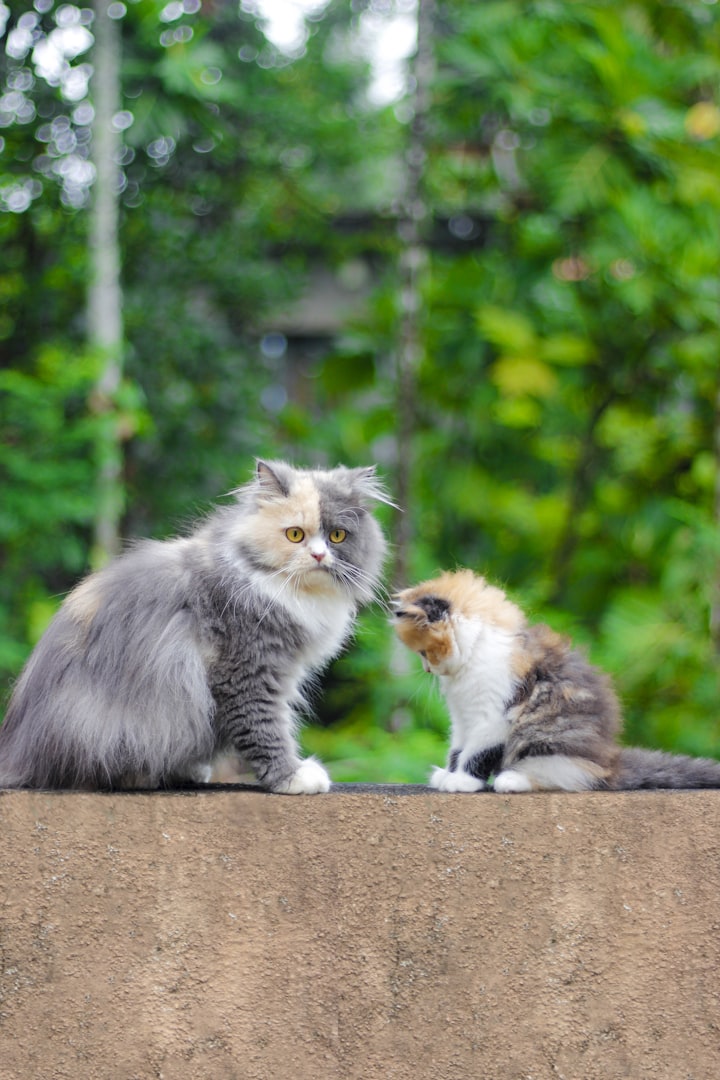Our Rescue Was Vicious — But We Still Kept Him
We made the commitment to welcome him into our lives. We don’t take that commitment, or his rehabilitation, lightly.

Long story short, we didn’t take this dog in because we necessarily wanted to.
We did it because we felt we didn't have a choice, and it was the right thing to do.
A family member on my partner’s side got this dog (despite our cautions against it) to give herself a companion at home.
When she moved away and couldn’t take the dog with her, the dog’s future was precarious.
We couldn’t afford to take him in. Not with the vet bills, and food, and medications and all the other aspects of doggy care.
Regardless, we still took him in. We weren’t having this poor guy sold online. There’s no telling where he could have ended up. He didn’t deserve to be entirely abandoned. He’d done nothing wrong.
So, unexpectedly, we accepted him into our family.
As a puppy, he was this adorable little fluff. Tiny and lovely and surely couldn’t hurt a fly.
I didn’t know then what I know now about Shih Tzus.
Like the fact that they’re incredibly stubborn, defensive, and will hijack your entire living space with their temper if you don’t discipline them and set ground rules from an early age.
I’m sure it is no surprise to you, reader, that this family member, of course, did not do these things.
Dog ownership is not picture perfect.
I want to make something very, very clear: this hasn’t been a Disney movie or Facebook viral video where the rescue dog arrives at their new forever-home and is just so happy to be alive that they are eternally grateful for being taken in.
Berkeley came to us with massive behavioural issues. He was given zero boundaries in his first home, and was incredibly defensive. He bit my father-in-law’s hand so badly that he had to get stitches. Berkeley only let go when my father-in-law choked him until he passed out.
Berkeley wasn’t well socialized either, so he was afraid of everything and anything. When small dogs are afraid, they lash out to protect themselves.
There were many days my fiancé and I looked at each other and wondered if our future children would ever be safe with this snarling, tiny beast in our home.
We still have at least 13 years with him in our lives, after all.
So, we established ground rules. We spent upwards of 30 minutes to an hour each night for months patiently instructing until he listened to our authority.
We learned how to side-submit him to the floor when he would lash out and attack. Our reflexes had to improve quickly and efficiently if we wanted to avoid stitches ourselves.
I’ve had to spend hours upon hours over the months, (upwards of 10 times per day), competing in staring contests with this white fluff to establish dominance, so that he actually respects me as an alpha.
Every night my fiancé and I would crawl into bed, two parents distraught over our delinquent child, wondering what it would take for us to be able to live a “normal” life again, with a “normal”, functioning dog — without the ever-present worry that he would bite someone.
Because if he bit a stranger, he would likely be ordered by the court to be put down.
Still, my partner and I would always end on the same note before tucking into bed:
“We’ll do the best we can, with everything we have, to save this dog’s life.”
Hard work pays off — but so does creating a safe environment to thrive.
Eight months later, and the resilience of our boundaries and training has paid off in massive ways.

Berkeley still has a ways to go, but now he sees us as authoritative figures, and understands that he’s safe with us and is not in imminent danger all the time.
He doesn’t lash out nearly as much, although he makes a real show of complaining when you tell him he has to do something he doesn’t want to do.
But, he does it. So that’s a huge improvement from where he first started when he arrived to us.
He has his moments, but he’s more often than not a joy to have around these days.
Even though he’s exceptionally grumpy if you wake him up unexpectedly from a nap.
Even though he’s a total drama queen who sneezes at you when he’s displeased and gives out giant, passive-aggressive sighs all morning until I take him out for his walk — as if life is so hard for this little guy. He has no idea how good he’s got it!
Even though, if I move too quickly from my desk and spook him, he still snarls and nips for my feet. He used to actually try to latch on and bite — now he just growls and bumps my foot with his massive underbite.
I can’t tell you how this behaviour is such a big improvement from the dog he used to be eight months ago.
I can’t tell you how incredibly happy I am that today he’s really only a dramatic tiny dorgo with a small-dog complex, rather than the vicious, snarling little sh*t he used to be.
Final word.
This process of rehabilitation is still taking place. Thankfully, we’re over the worst of it (I hope). Thank God.
That said, there’s still a ways to go, and there’s no telling how far we’ll get or how long it will take.
Only time will tell. Rescues are absolutely not pets for the faint of heart or those lacking in determination and will.
Whenever Berkeley (or Broccoli, as we lovingly call him) lashes out, we try to remember that he’s acting out of fear, not out of a desire to cause harm to us.
The uncertainty of tomorrow causes a lack of stability in his mind — he probably felt like he was in a psychological warzone with his previous owner for the first year and a bit of his life.
The safer he feels, and the more at home he feels with us, the less he's lashing out.
He needs to know he’s safe and secure with his humans. Considering his first owner abandoned him after 18 months, we can’t expect to have his full trust at only 8 months in.
But he’ll see it soon. We’ll stay on his side, and keep him close as a member of our family.
He’ll realize one day that he’s fully safe with us.
This article was originally published by the author on Medium.






Comments
There are no comments for this story
Be the first to respond and start the conversation.